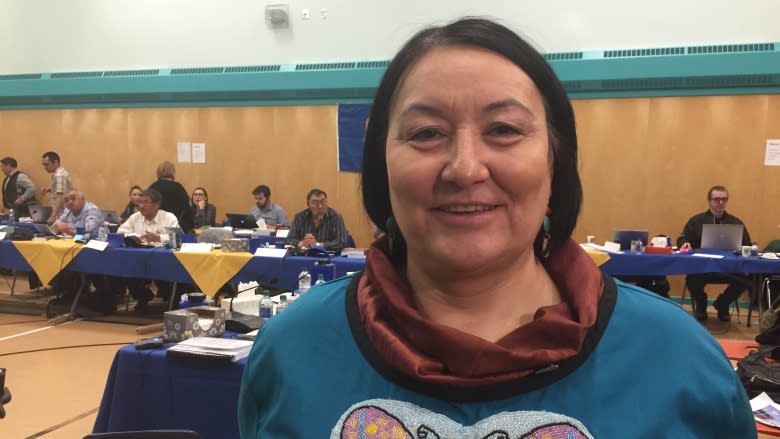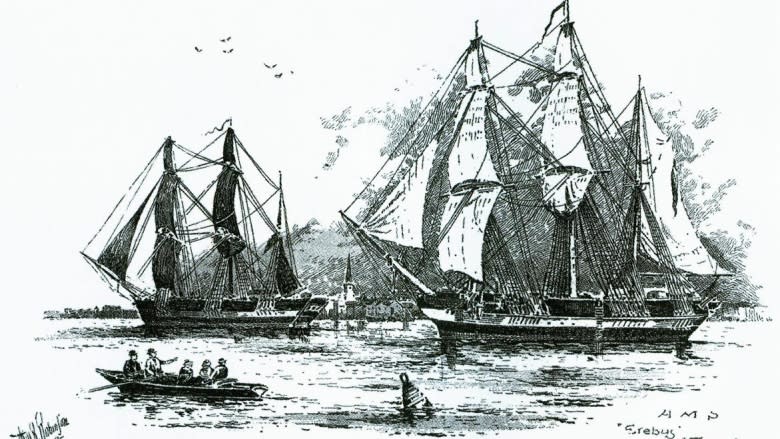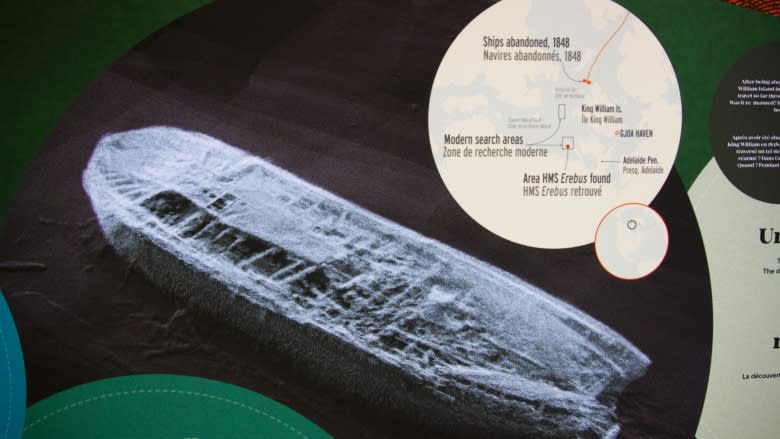Inuit press claim for co-ownership of Franklin artifacts
Inuit are pressing Ottawa to recognize their ownership rights over the wreck and contents of HMS Erebus, even as Parks Canada prepares to assign to Britain permanent custody of key artifacts from the famous Sir John Franklin ship.
Under a 1997 deal with Britain, Canada agreed the United Kingdom owned any artifacts to be recovered from the Franklin expedition. Britain would keep objects significant to the Royal Navy, which dispatched the ships to the Arctic in 1845, then transfer ownership of the remainder to Canada.
The deal was activated when a Canadian government expedition finally found the elusive wreck of HMS Erebus in 2014, and divers eventually hauled up 55 objects, including the ship's bell.
In May, Parks Canada began talks with officials of the National Museum of the Royal Navy, in Portsmouth, England, about which items from the treasure trove the British want to keep.
But the president of Nunavut Tunngavik Inc. says a 1993 land-claims agreement assigns to the Inuit joint ownership with Canada of any archaeological finds — and she rejects any claim the British might make.
Cathy Towtongie's group wrote in April to Environment Minister Catherine McKenna asking for an acknowledgment of Inuit ownership rights — but so far there's been no response. They had made the same appeal repeatedly to the previous government, without results.
"This is an opportunity for a new relationship to be on display," Towtongie said in an interview from her home in Rankin Inlet.
A spokeswoman for Parks Canada acknowledged negotiations have started with Britain, and stopped short of saying the Inuit will be given co-ownership of Franklin artifacts.
"Parks Canada is committed to exploring options for co-ownership of the artifacts with our Inuit partners," Audrey Champagne said in an email.
A spokeswoman for the National Museum of the Royal Navy didn't comment on the state of the talks.
"Negotiations are still underway, so we don't have a lot to say at the moment," said Jacquie Shaw.
Towtongie, who helped negotiate the 1993 Nunavut land-claims agreement with Ottawa, says her family has first-hand experience of losing possession of a Franklin-era artifact, a Victorian gold coin known as a sovereign.
Her great-grandfather, who helped guide an expedition in search of the lost Franklin ships, acquired the coin in the 19th century and it was handed down through generations in case the family ever needed "white man's money."
"I used to play with it," says Towtongie of her childhood in the 1950s. She vividly recalls the motif of St. George slaying a dragon on one side, and on the other, Queen Victoria — "the lady with the crown, almost serene looking with fat cheeks."
The family gave the coin as protection to her only brother in 1960, when he was sent to a residential school in Churchill, Man. There, she says, it was promptly stolen by one of the supervisors.
Towtongie says the Inuit will not let the HMS Erebus artifacts be taken from them in the same way.
"If our ancestors were able to survive in their time and make decisions, we Inuit can do the same in partnership with Canada," she said.
The recovered Franklin expedition artifacts were all taken to Ottawa, with reproductions given to the Inuit, who want the real things eventually displayed in a museum in Gjoa Haven, a hamlet close to where HMS Erebus was finally found.
Crushed by ice
The Canadian government expeditions that identified HMS Erebus in 2014 relied on Inuit oral knowledge handed down since the late 1840s, when Sir John Franklin's two ships, HMS Terror and HMS Erebus, met with disaster and sank. They were trying to find the last link in the Northwest Passage across the Arctic.
Inuit tradition says HMS Terror was completely crushed by the ice and will not be found intact, as Parks Canada gears up for a seven-day, mid-September search for underwater remnants. Two days' of diving on HMS Erebus, which was not crushed before it sank, are also planned for early September.
Parks Canada spent more than $1 million in the search for the Franklin ships between 2008 and 2015, and received another $16.9 million in 2015 for research, staff and creation of a facility in Gjoa Haven.
The agency plans more extensive dives and other work in 2017 as part of the celebrations for the 150th anniversary of Confederation.
Follow @DeanBeeby on Twitter




